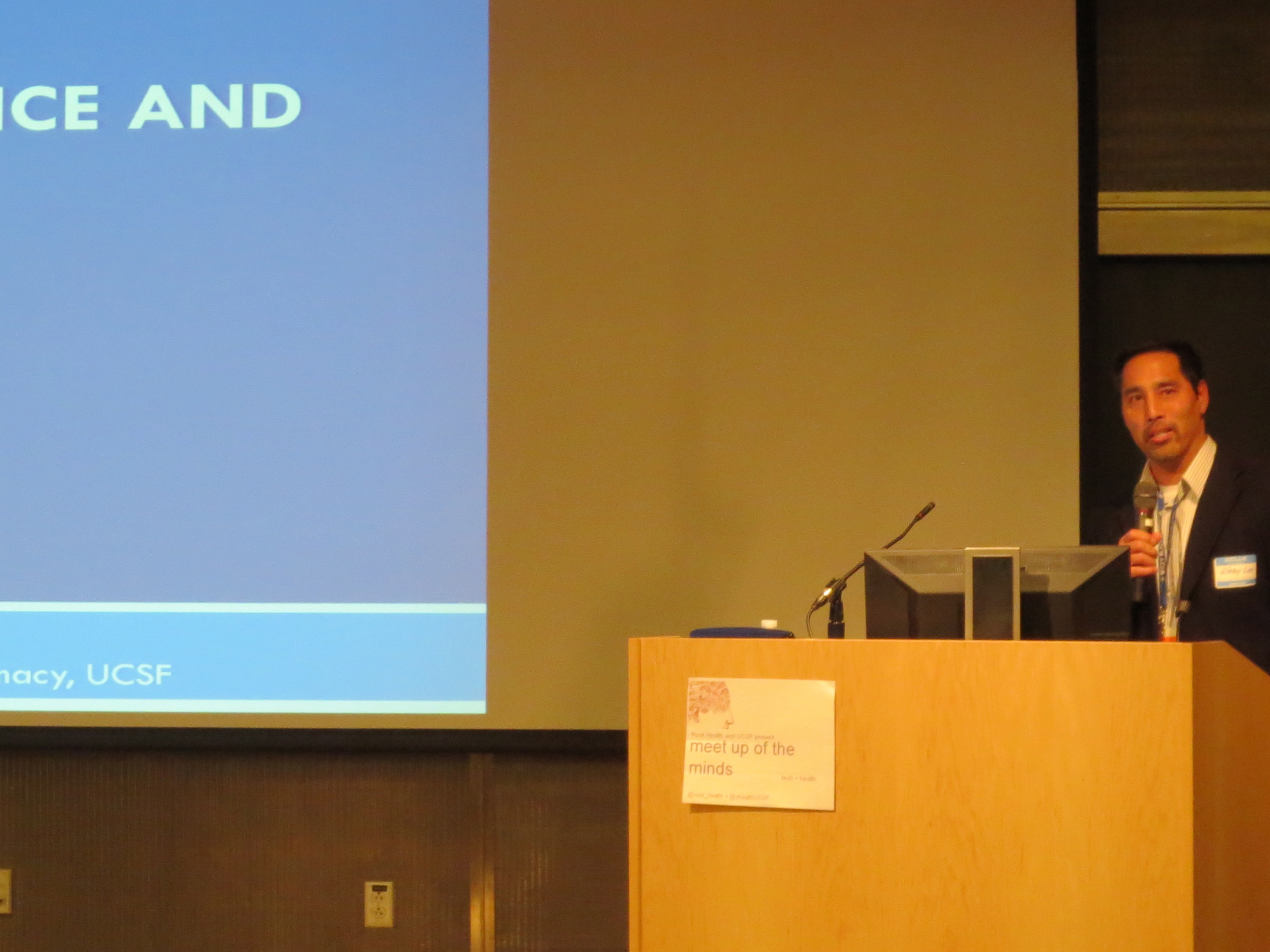Meet Up of the Minds: Catalyzing Collaboration Among Clinicians, Entrepreneurs, and Technologists
March 5th, 2013, Rock Health and UCSF partnered to present the second edition of the Meet Up of the Minds Conference. This event featured clinicians discussing pain points in the healthcare system as well as offered breakout discussions fostering collaboration among medical professionals, entrepreneurs, and technologists seeking to address these pain points with digital solutions. Here’s a look at who presented, and what we learned:
Aenor Sawyer, MD, MS – Partner in Solutions

Dr. Aenor Sawyer, Assistant Clinical Professor of Orthopedic Surgery, presented on the importance of hospital-entrepreneur partnerships. She highlighted the “different metabolic rates” between academia and startups and existing incentives as current challenges to partnerships, but reconciled these challenges with the shared motivation and drive to “make something useful” among clinicians and entrepreneurs.
Ralph Gonzales, MD, MSPH – Healthcare Delivery

Increased specialization of clinicians has helped us learn how to address specific health problems, however, it has also increased inefficiencies in access to patient care. In his presentation, Dr. Ralph Gonzales expressed the need for solutions that streamline communication between patients and specialists and streamline data collection and documentation that triage patient cases.
Christine Ritchie, MD – Geriatric Care

People are living longer. But over half of our aging population is affected by 3 or more co-existing chronic diseases. Dr. Christine Richie discussed the need for innovation surrounding real-time monitoring and decision support in the dosage and administration of medication in the elderly population. Such interventions would allow for evaluation of impact on cognition and fuction, pre-emptively address adverse effects or drug interactions, and help prevent symptom cascade.
Kate Possin, PhD – Neuropsychology
Current monitoring and tests for Alzheimer’s disease and other neuropsychological problems are either quick but only sensitive to moderate-severe disorders/diseases, or are more comprehensive and accurate, but are inefficient. Dr. Kate Possin suggested computer based testing and in-home monitoring that would be sensitive to the differing early symptoms of dementia, adaptable for in-home evaluation, and more efficient than past evaluations methods.
Kirby P. Lee, Pharm.D, MA – Facilitating Pharma

From pillboxes to apps, pharma has seen various types of innovation to increase adherence to medication. However, as Dr. Lee points out, there is a serious need for interoperability, minimal data entry, and security within innovative pharma solutions.
Christine Kennedy, RN, PhD, FAAN – Self Health
Inactivity is one of the largest contributors to the obesity epidemic in the United States. Dr. Kennedy’s suggestions for innovation: develop engaging app/mobile fitness solutions that are designed for the average person, as opposed to the fitness buff or health fanatic.
Medical Education, MPH, MS4 – Medical Education

In the last presentation of the night, Michael Turken, a fourth year student at UCSF reflected on medical education. Years one and two are filled with seemingly endless lectures, seminars, and library study sessions, while years three and four are all about learning how to operate in the clinical setting, applying what was learned in year one and two to real life situations. Soon-to-be-Dr. Turken offered some ideas for improvements: gamification could help with some of the rote memorization tasks required in year one and two as well as some diagnosis differential training learned in year three and four. Additionally, peer-to-peer learning through crowd-sourcing pictures, maps, and notes, could help students learn from other students’ experiences.